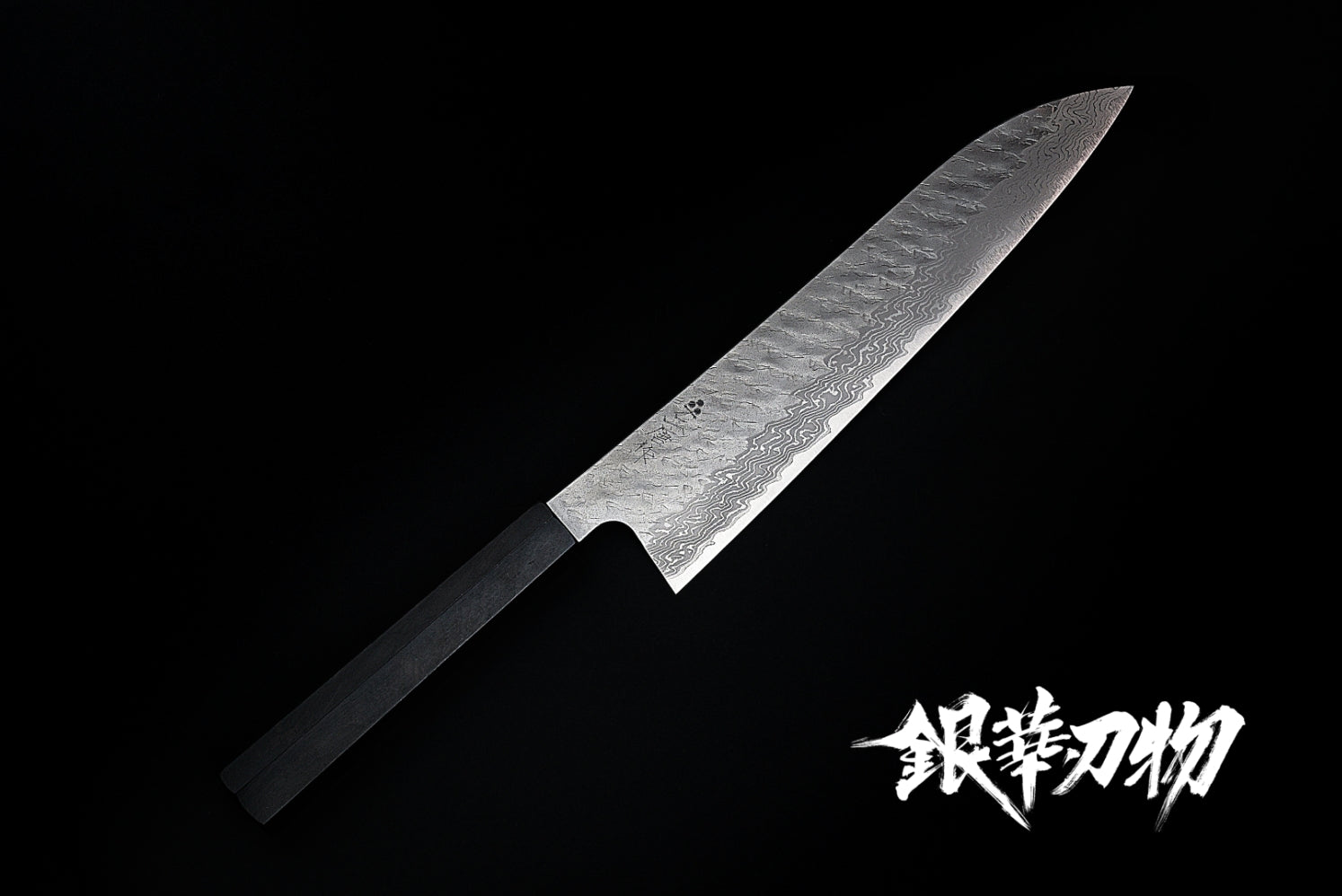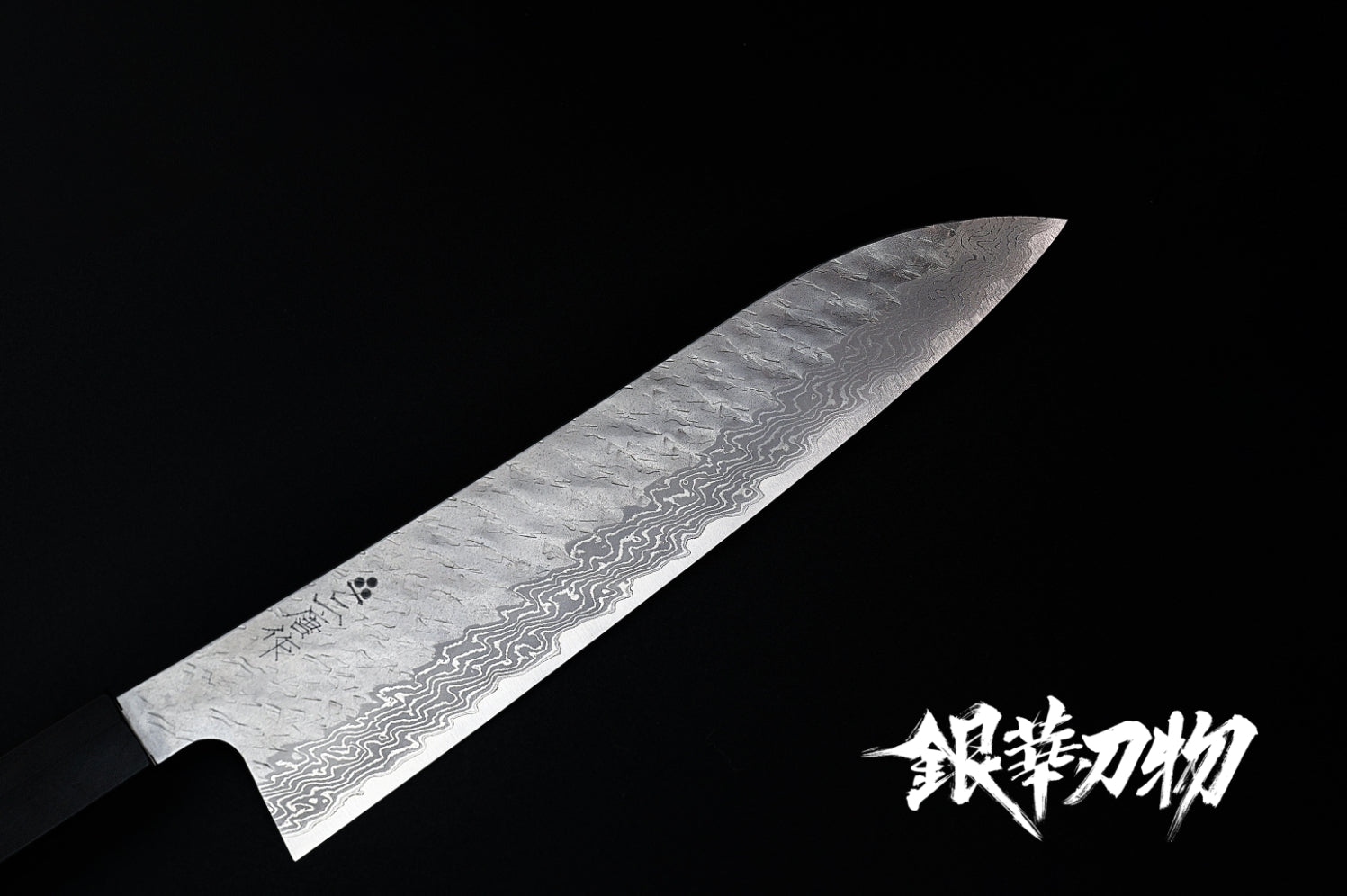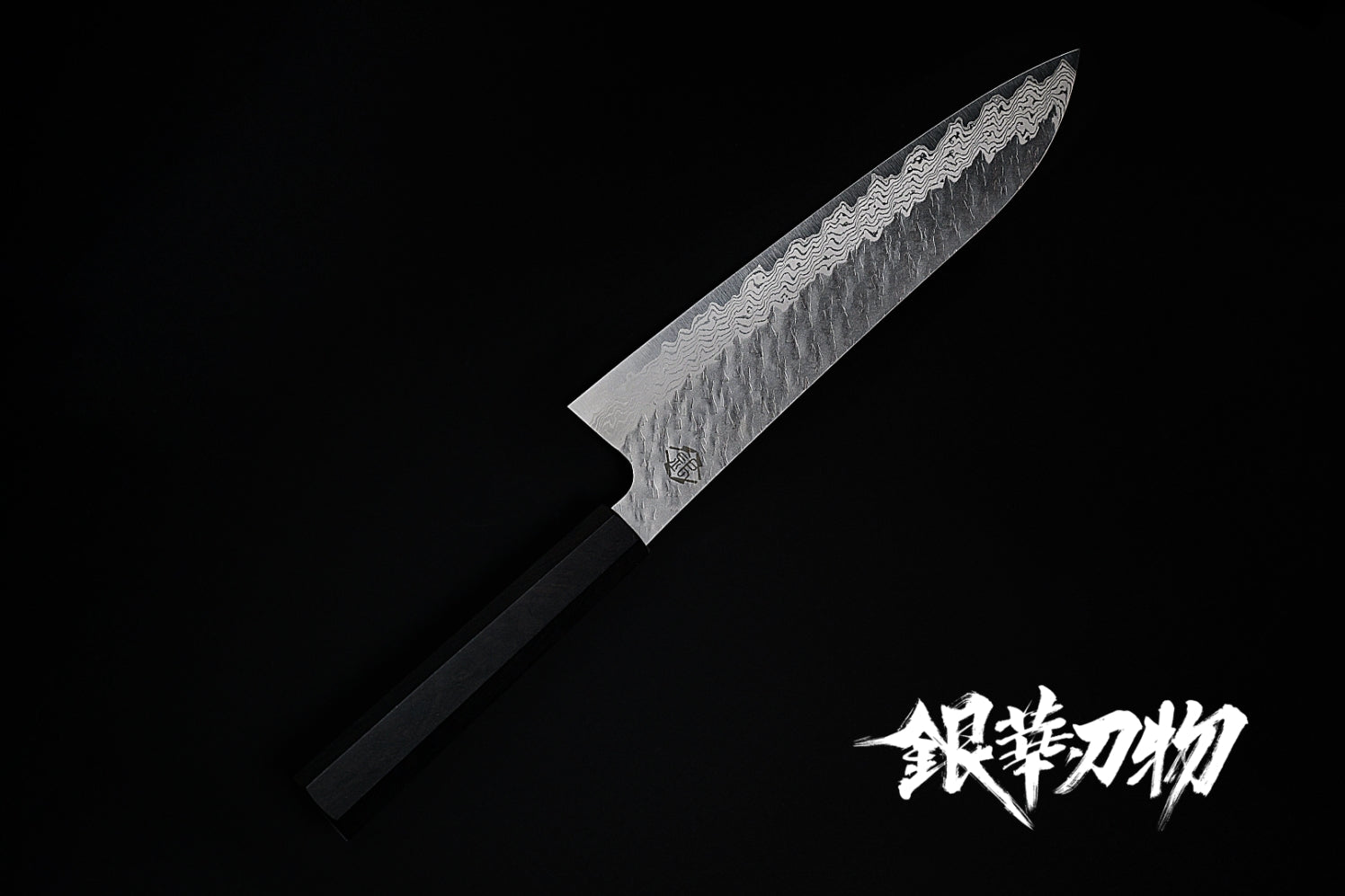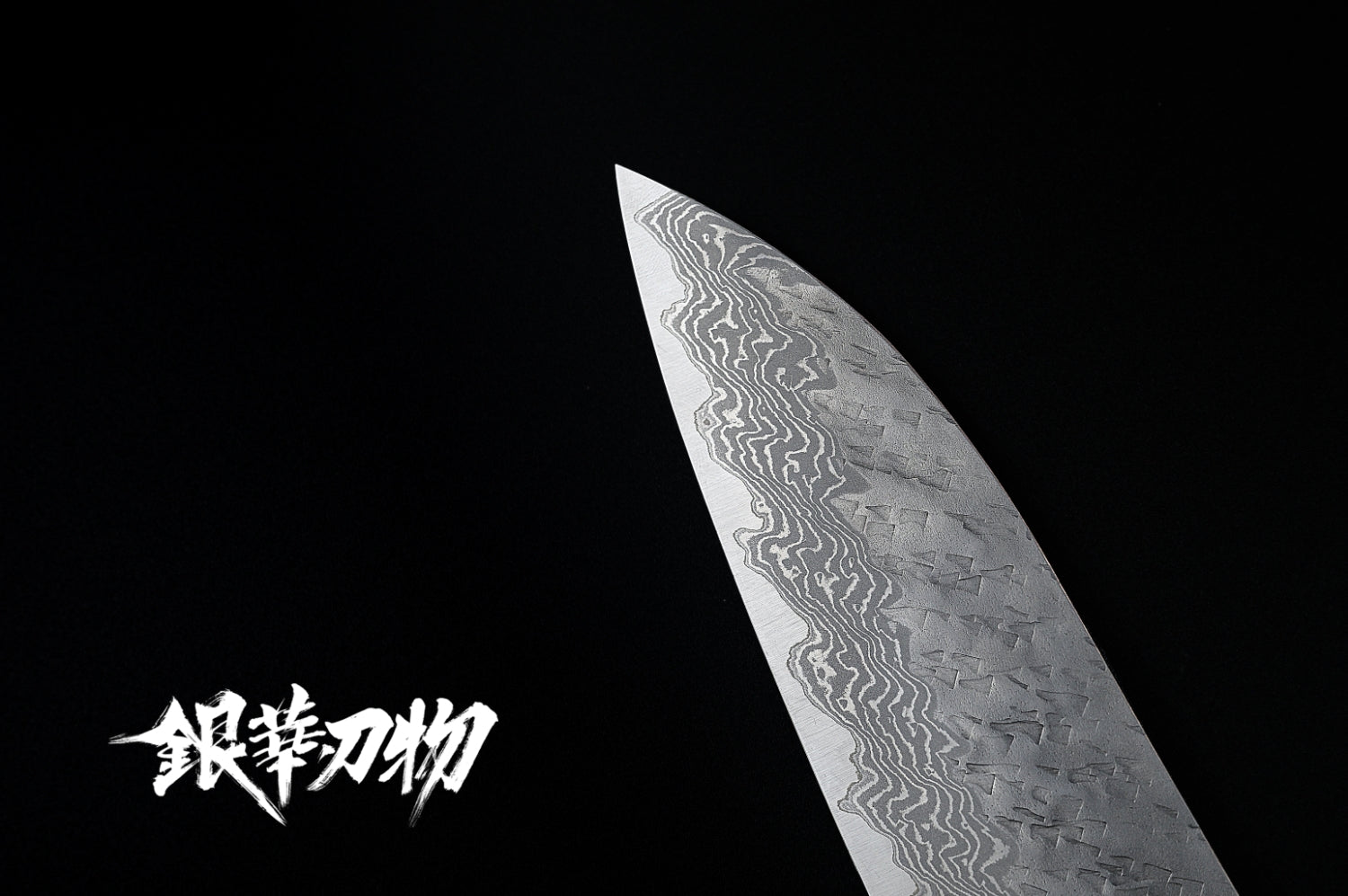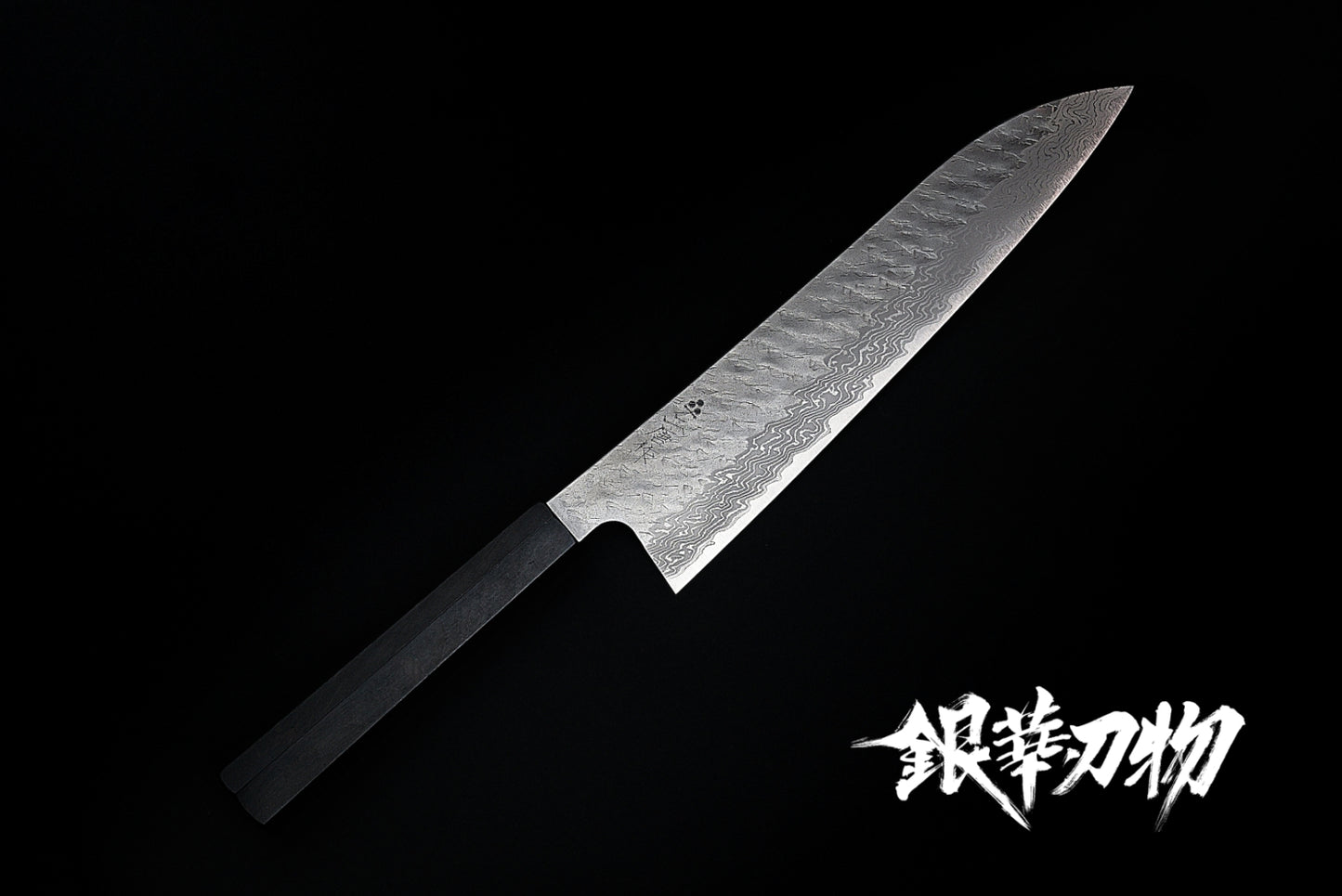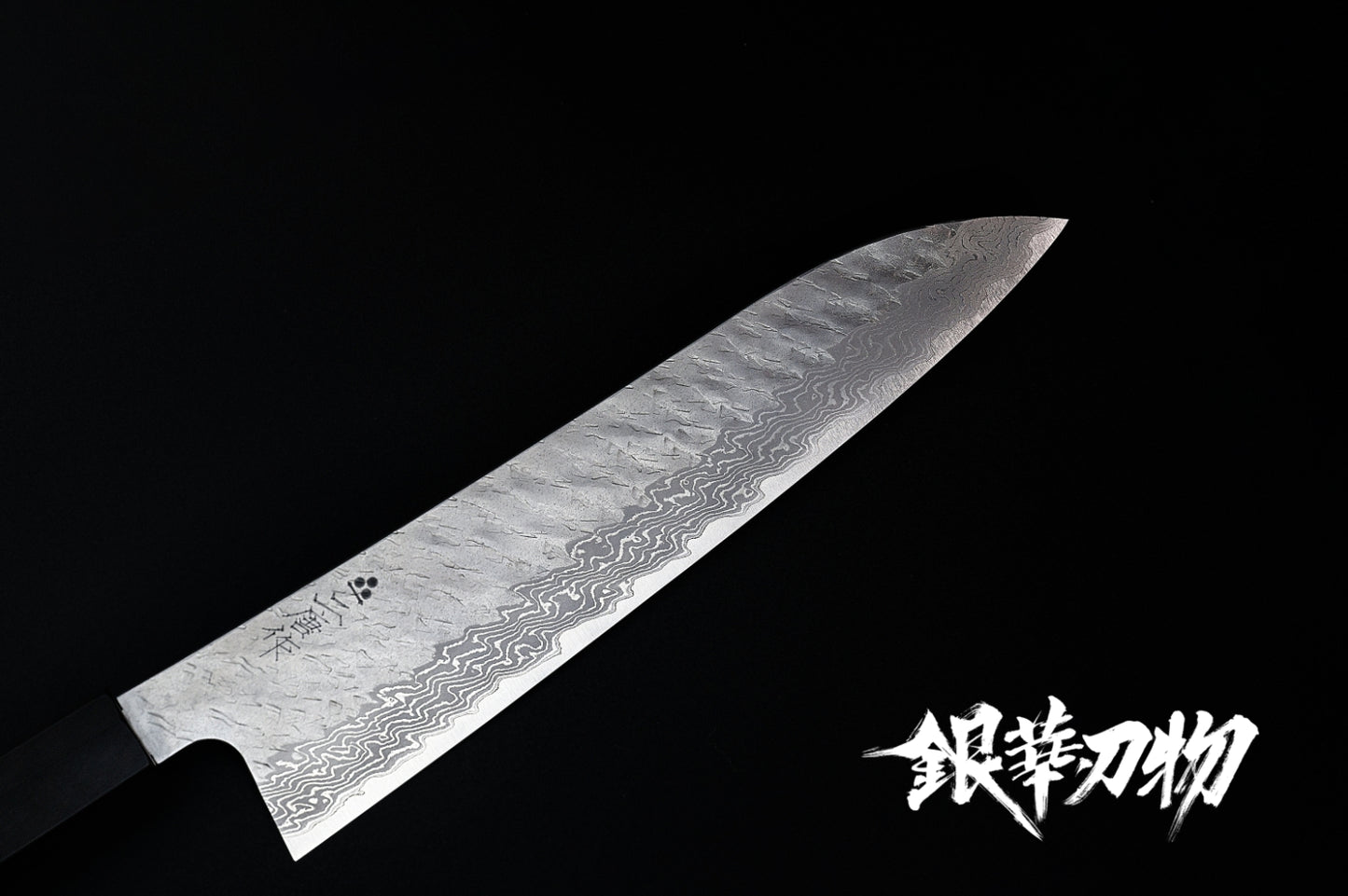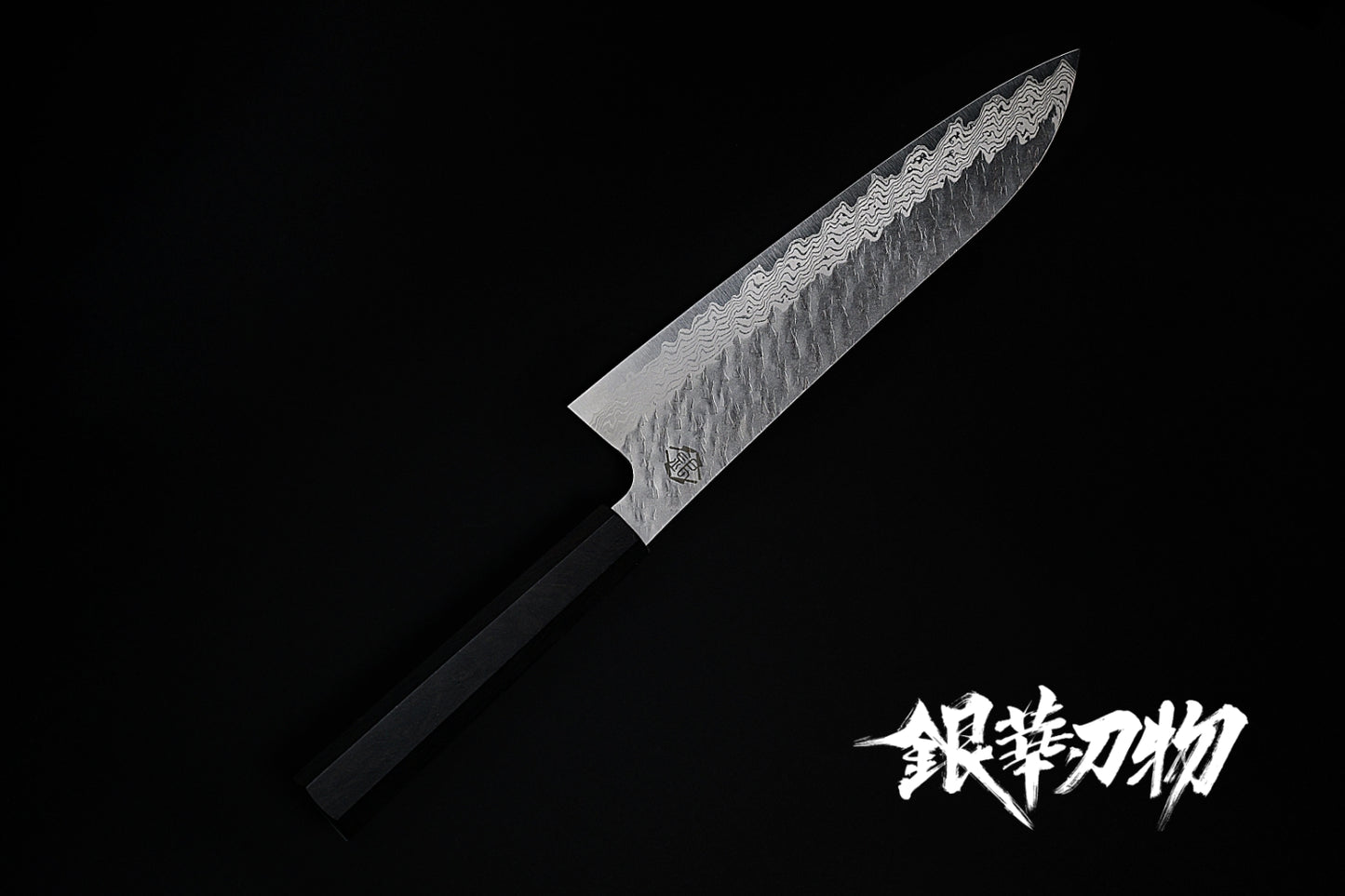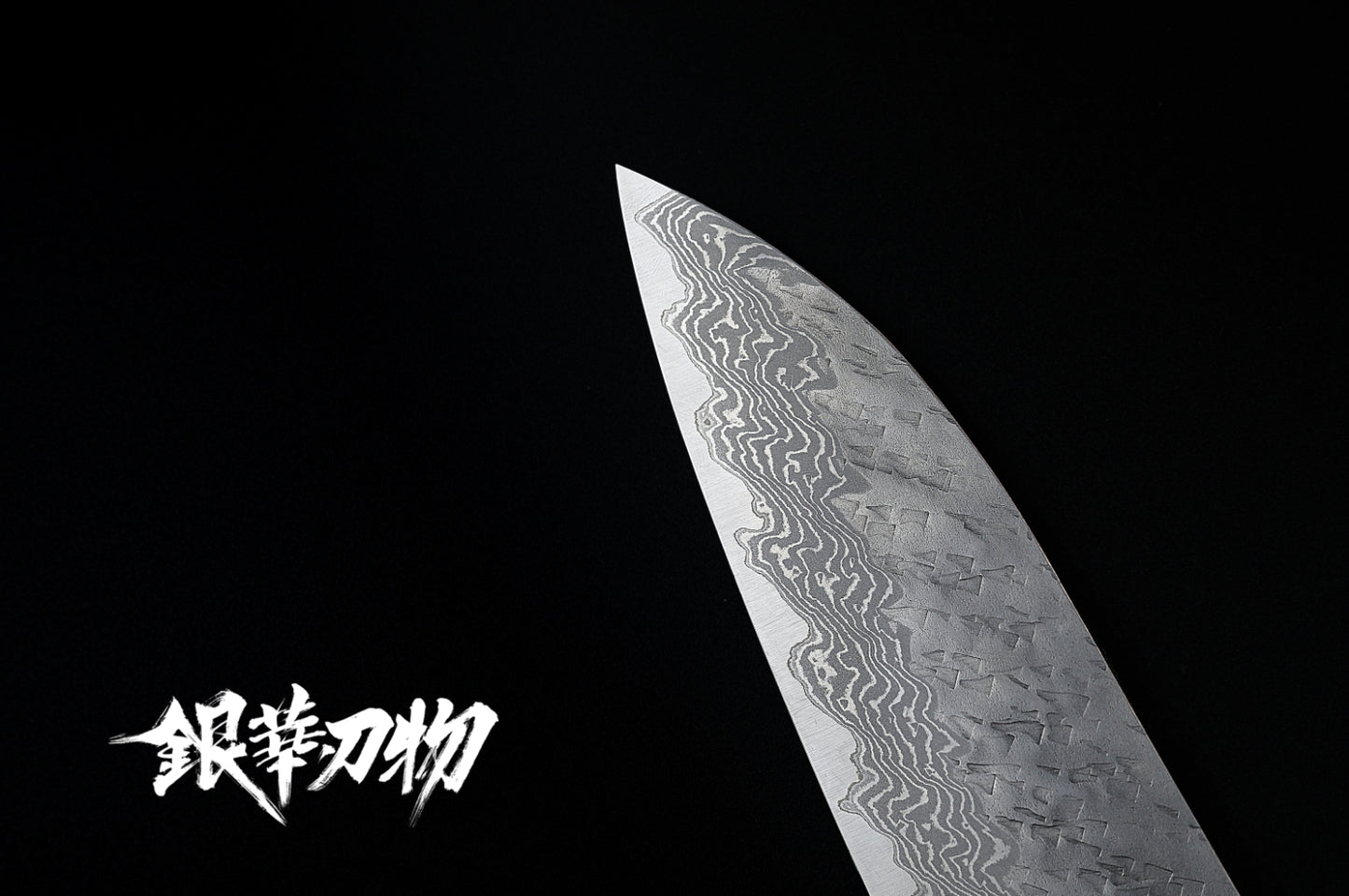重要案内
INFORMATION
重要提示:
1.请不要将刀具放入自动洗碗机中进行清洗。(这个建议是基于刀柄使用寿命去考虑的,经常用洗碗机去洗,必然会导致刀柄的使用寿命大大缩短。而不是说刀本身无法承受进入自动洗碗机中)
2.请不要将刀具长时间浸泡在水里或长期放置于潮湿环境中,更不要在使用后不进行清洗,让残留物一直附着在刀身上。这不仅是基于刀具使用寿命的考虑,更是基于干净卫生层面的考虑。
3.在使用结束之后,请对刀具仔细地进行手洗,并用柔软的布擦拭干净并保持厨刀的干燥,将其放在干燥的地方保存。
4.日本的厨刀拥有极高的锋利度。在使用和保存时,请务必格外小心。
5.切勿使用日本厨刀去切割、敲击、拍打坚硬的物体,否则很可能造成刀刃的崩裂或开裂。
6.请不要用日本厨刀来切骨头或着冷冻食品,也不要用其来切开龙虾和螃蟹等外壳坚硬的食物。当刀变钝时,建议使用日本磨刀石进行研磨。
关于日本厨刀的日常养护:
1.日本厨刀的锻冶技术是由传统的日本刀发展而来,因此日本的厨刀拥有较高的锋利度和硬度,在切割、分割方面的表现十分优秀,拥有优秀的切割能力。且日本的日常生活中所购买到的食材包括鱼肉、鸡肉、牛肉和猪肉等,多数已经是被处理为纯肉的状态,因此除了鱼骨和部分软骨之外,在日本的多数料理场景中,极少会出现需要砍、剁的情况。因此,日本的厨刀多数不是设计于砍剁时使用,所以请不要尝试切割或砍冷冻食物和骨头,以免造成刃口破损。
2.如果您购买的厨刀是由碳素刃物钢(简称碳钢)制造而成,在使用后,请务必把刀洗干净并擦干水分,不要带有残留,否则容易导致刀刃快速生锈。当然,站在干净卫生的角度上而言,不锈钢的厨刀也建议您保持刀身的整洁卫生。如果您接下来长时间不使用您的厨刀,我们建议涂上一层刃物油(橄榄油也是可以的),建议再使用防锈纸(报纸也是可以的)把刀刃包裹起来。
3.如果您购买的厨刀是由不锈刃物钢(简不锈钢)制造而成,虽然拥有一定的防锈防腐蚀性能,相对而言易于维护。但是如果刀具长时间处于潮湿、恶劣的环境中,依然是会生锈的,请悉知。
4.想要尽可能地提高日本厨刀(特别是传统的片刃/单刃厨刀)的锋利度,十分建议您使用日本的磨刀石对刀刃进行研磨。日本厨刀所使用的钢材(特别是碳素钢)多数是由日本专门的钢材厂为厨刀而研发、制造的刃物钢,通过砥石的研磨后,可以获得更为良好的切割感。这种效果,在使用磨刀器、磨刀棒等方法的情况下,是会有所减退的。
我们可以把商品直邮寄送到您的国家,基础邮费为9000~10000日元。(如果您购买的是厨刀,则中国大陆无法直邮,需要使用本店的标准流程进行成批直邮)
Important Notes:
1.Please refrain from using a dishwasher machine to clean the knife. (This advice primarily considers the longevity of the knife handle. Frequent dishwashing can significantly reduce its lifespan.)
2.Avoid leaving the knife submerged in water for extended periods or stored in a damp environment. Always clean the knife thoroughly after use, removing any food residue. This recommendation not only pertains to the knife's lifespan but also hygiene.
3.After use, hand wash the knife with care, then wipe it dry using a soft cloth. Store the kitchen knife in a dry place.
4.Japanese kitchen knives are renowned for their exceptional sharpness. Exercise extreme caution when using and storing them.
5.Do not use the Japanese kitchen knife to cut, strike, or tap hard objects, as this could lead to chipping or cracking of the blade.
6.Avoid using the knife to cut bones or frozen foods, and refrain from using it on hard-shelled items like lobsters and crabs. When the blade becomes dull, it is recommended to use a Japanese whetstone for sharpening.
Regarding the daily maintenance of Japanese kitchen knives:1、The forging technique of Japanese kitchen knives has evolved from traditional Japanese swords, giving them superior sharpness and hardness, making them excellent for cutting and slicing tasks. Most food ingredients commonly purchased in Japan, such as fish, chicken, beef, and pork, are often already processed into boneless or meat-only forms. Consequently, the need for chopping and cleaving is rare in most Japanese culinary scenarios. Therefore, Japanese kitchen knives are not designed for heavy chopping, and it is advisable not to attempt to cut or chop frozen foods and bones, as it may lead to blade damage.2、If your kitchen knife is made from carbon steel, it is essential to wash the knife after use and thoroughly dry it to prevent moisture retention. This is especially important as carbon steel blades are prone to rust if not properly maintained. From a hygiene standpoint, it is also recommended to keep stainless steel knives clean. If you plan to store your knife for an extended period without use, we suggest applying a layer of knife oil (olive oil is also suitable) and wrapping the blade with rust-resistant paper (newspaper is acceptable).
3、If the kitchen knife you have purchased is made of stainless blade steel (commonly known as stainless steel), it does possess some rust and corrosion resistance and is relatively easy to maintain. However, if the cutlery is exposed to damp or harsh environments for an extended period, it can still rust. Please be aware of this.4、To maintain the maximum sharpness of Japanese kitchen knives, especially traditional single-bevel knives, we highly recommend using Japanese whetstones for sharpening. Most Japanese kitchen knives are crafted from specialized knife steel developed for kitchen cutlery, especially carbon steel. Sharpening with whetstones provides a superior cutting edge and is preferred over other sharpening methods such as honing rods or sharpeners.Please note that proper care and maintenance will help ensure the longevity and performance of your Japanese kitchen knives.
We can ship the goods to your country. The basic shipping fee is 9000 to 10000 yen.





































